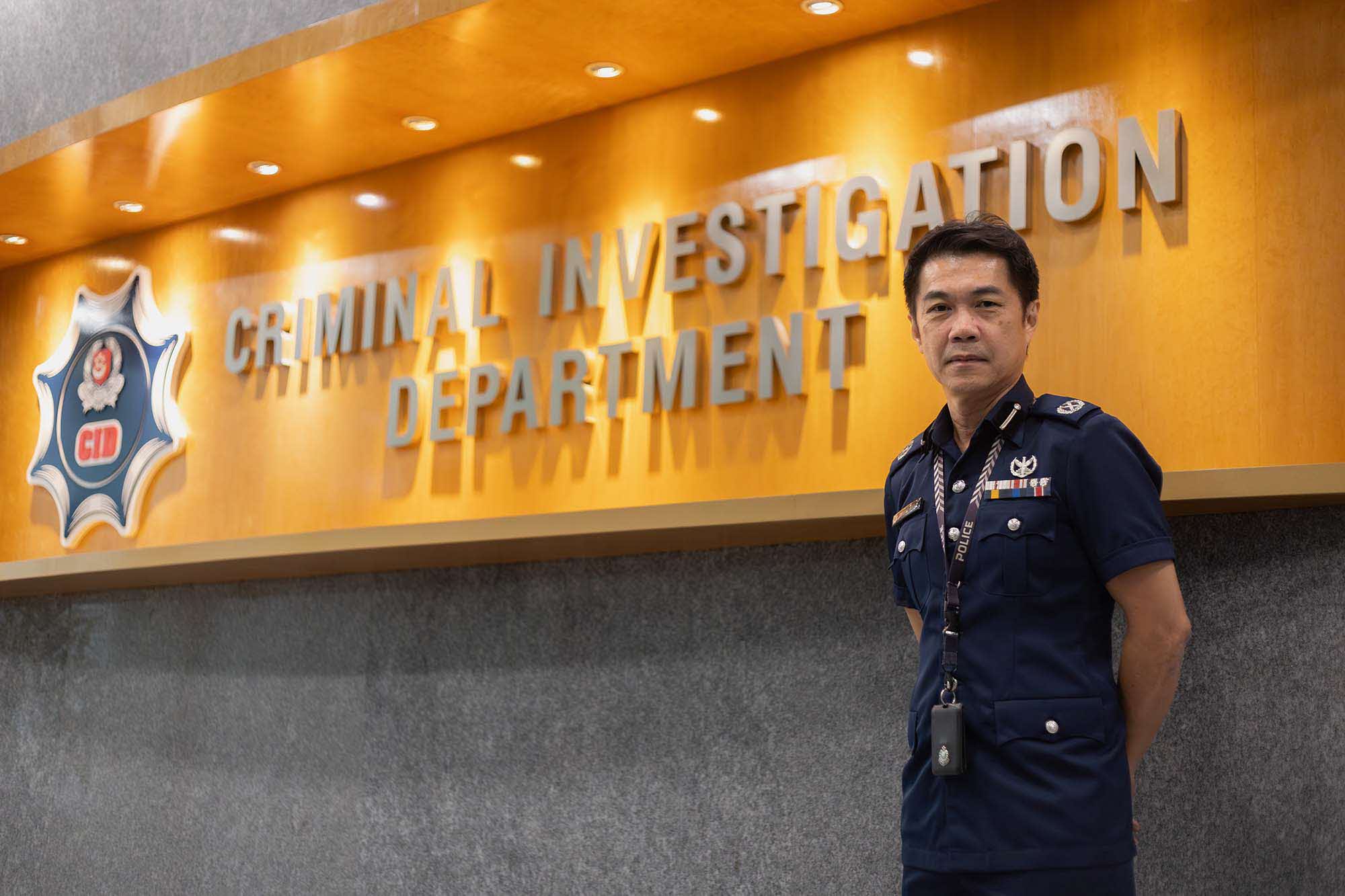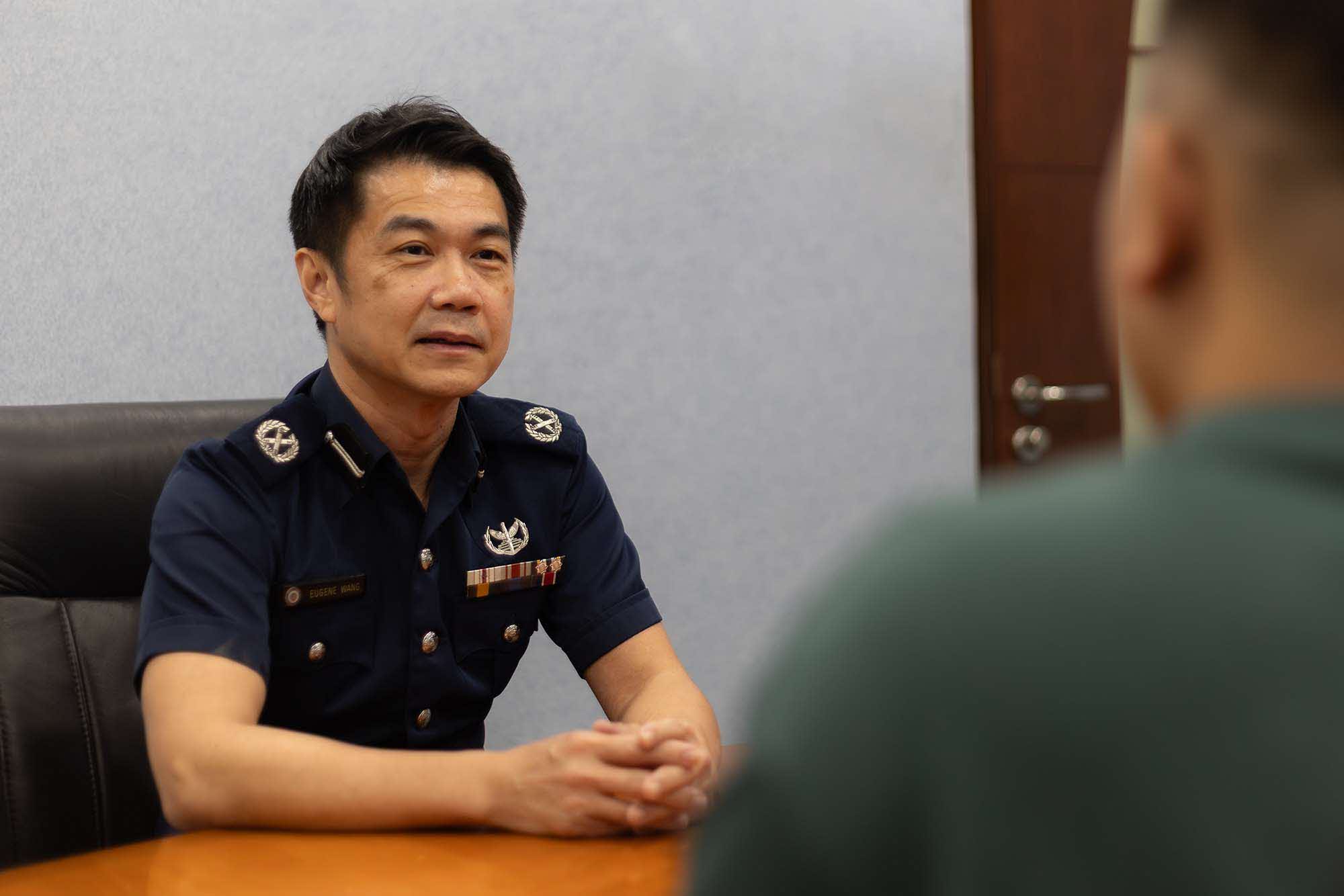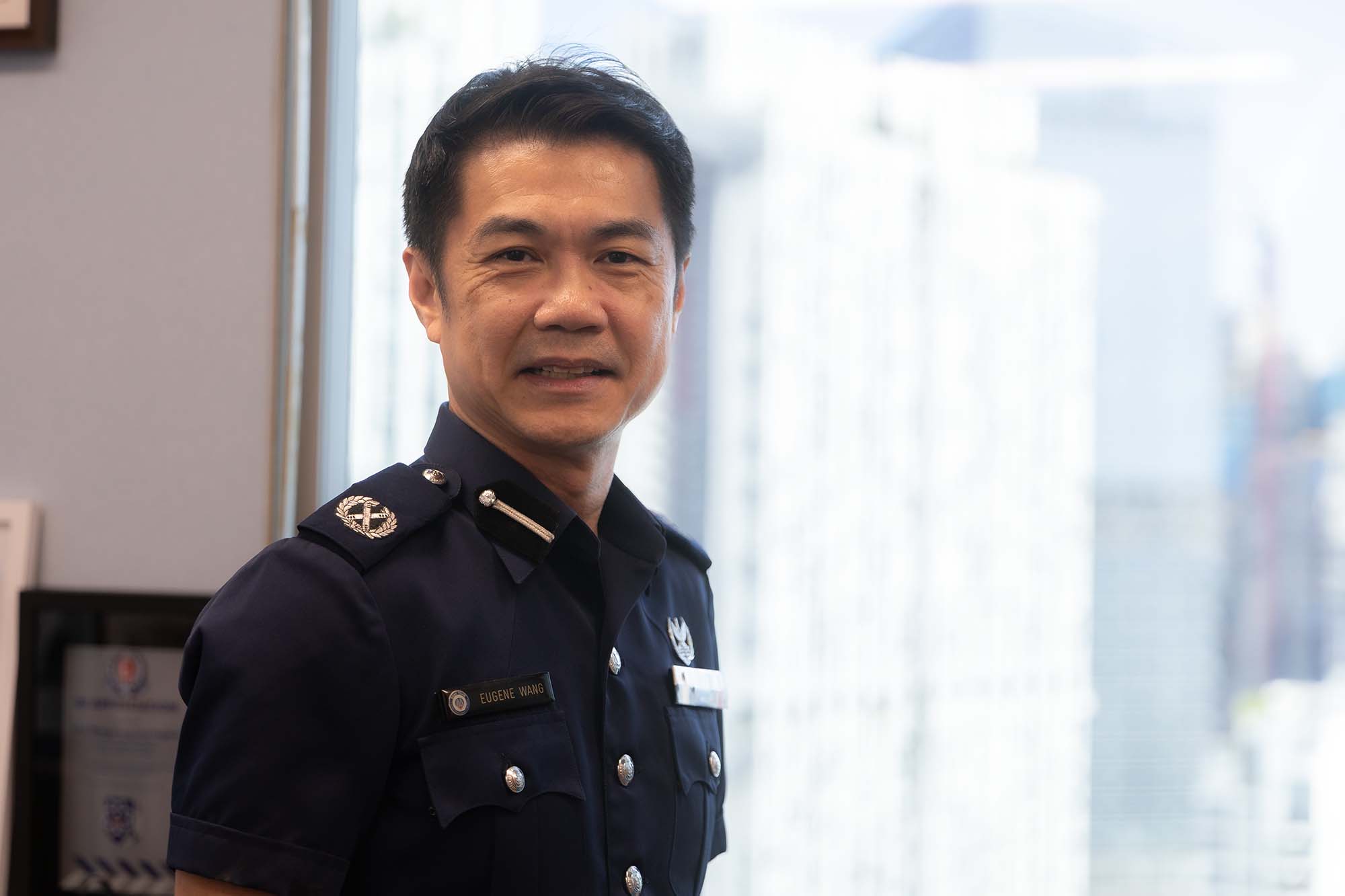
This year marks a milestone for two highly specialised branches within the Specialised Crime Division (SCD) of the Criminal Investigation Department (CID) – the Organised Crime Branch (OCB) and Financial Investigation Branch (FIB).
Celebrating their 10th anniversaries this year, the OCB and FIB have complementary missions. The OCB is responsible for the conduct of investigations, enforcement and prosecution against organised crime syndicates, while the FIB conducts parallel investigations against organised crime syndicates to remove the financial incentives derived from criminal activities.
The work of the OCB and FIB is especially challenging given that these syndicates often operate transnationally, with illegal activities spanning across multiple countries.
Police Life met with Deputy Assistant Commissioner of Police (DAC) Eugene Wang, Assistant Director, SCD, to learn more about the OCB and FIB’s work over the past decade. As the founding Head of the OCB in March 2015, DAC Wang offered rare insight into the early challenges and key triumphs of this specialised team.
Inspired to Serve
DAC Wang joined the Singapore Police Force (SPF) in November 2000. “I used to watch Hong Kong TVB police dramas when I was growing up,” he shared with a smile. “My aunt was also a Police officer, so I was curious about the work. Later, my university friends who joined the SPF told me that the work was meaningful and challenging – that inspired me to apply after my graduation.”
Following postings at Bedok Police Division in January 2004 and Manpower Department in November 2005, DAC Wang joined the CID in May 2007. With the passing of the Organised Crime Act (OCA) in Parliament in August 2015, the SPF and Central Narcotics Bureau gained new levers to tackle organised crime.
As the founding Head of the OCB, DAC Wang hit the ground running. “One of our key tasks was to recruit the right officers and define the OCB’s mission, which differs from other investigation units,” he recalled. “We weren’t just forming a new unit; we had to operationalise the OCA and equip our officers to use it effectively.”

DAC Wang highlighted the complexity of OCB’s work, given that organised crime syndicates are sophisticated, transnational and often well-concealed. “Investigations can take years – from uncovering the layers shielding syndicate leaders to seizing criminal proceeds,” He shared. “That’s why the OCB and FIB have worked closely together from the start to conduct parallel investigations.”
In the early days, DAC Wang also forged closer ties with other public agencies and the Attorney-General’s Chambers. To share best practices with overseas counterparts, the team also conducted exchanges with the Hong Kong Police Force’s Organised Crime and Triad Bureau.
High-Stakes Operations
One defining moment for the OCB came during its first successful major operation against an organised crime syndicate. Having painstakingly built its case, the team was ready to make its move. “It was intense,” DAC Wang recalled. “We prepared for months, coordinating more than 30 concurrent enforcement operations. It was a test of everything we’d built.”
A 2018 fuel theft case further cemented the OCB and FIB’s reputation. A detailed probe revealed that a syndicate had siphoned marine oil gas worth over $100 million from Shell’s Pulau Bukom facility over many years, and resulted in simultaneous raids islandwide and the arrest of 17 suspects.
“Seizing a foreign oil tanker during the operation was certainly unprecedented, but it sent a strong signal that Singapore does not tolerate organised crime,” said DAC Wang. “One of the masterminds was jailed for 29 years for his role.”
Transforming Over a Decade
Over the past 10 years, the OCB and FIB have evolved significantly, enhancing investigative capabilities and raising the standard of investigations.

“Financial investigation is now a core competency for Investigation Officers, much like cybercrime awareness,” DAC Wang explained. “We’ve developed frameworks and skills that support the wider investigation fraternity. Today, the OCB doesn’t just investigate cases – we also guide officers and share expertise with other law enforcement agencies.”
Balancing the demanding pace of investigations with personal time isn’t easy, but for DAC Wang, a long walk, good audiobook and catching up with friends provide a welcome sense of grounding. “Resilience matters, and having time to recharge helps us stay sharp,” he shared.

In January 2024, DAC Wang was appointed Assistant Director of the SCD, taking charge of both the OCB and FIB. As he reflected on the cases that he’d led, DAC Wang noted that, over 10 years, both branches had worked together to successfully disrupt numerous organised criminal syndicates, bring key offenders to justice and recover millions in criminal proceeds. “We’re proud to see how far both the OCB and FIB have come,” he said, “and how they continue to protect Singapore against organised crime.”
But new challenges lies ahead as organised criminal activities become increasingly sophisticated and technology driven. “That’s why it’s important that we continue to develop our capabilities and remain relevant in the years to come,” affirmed DAC Wang.


